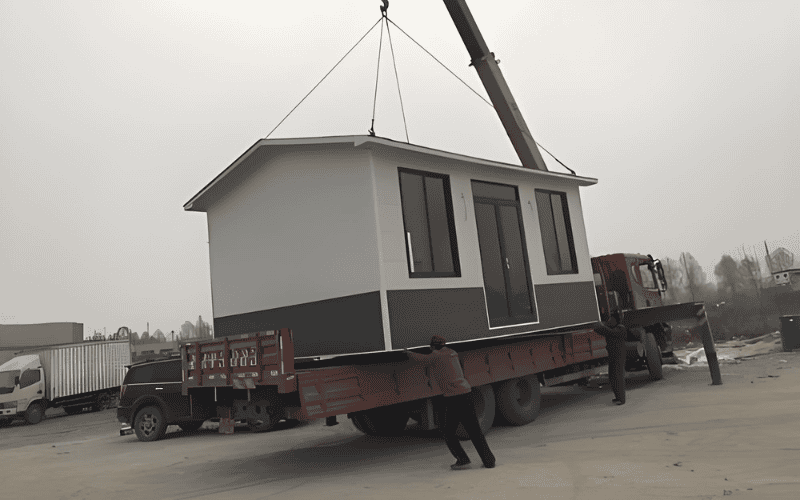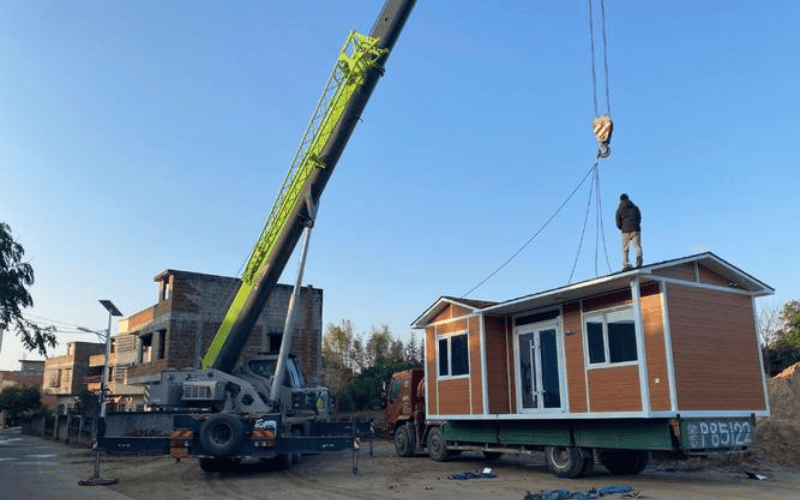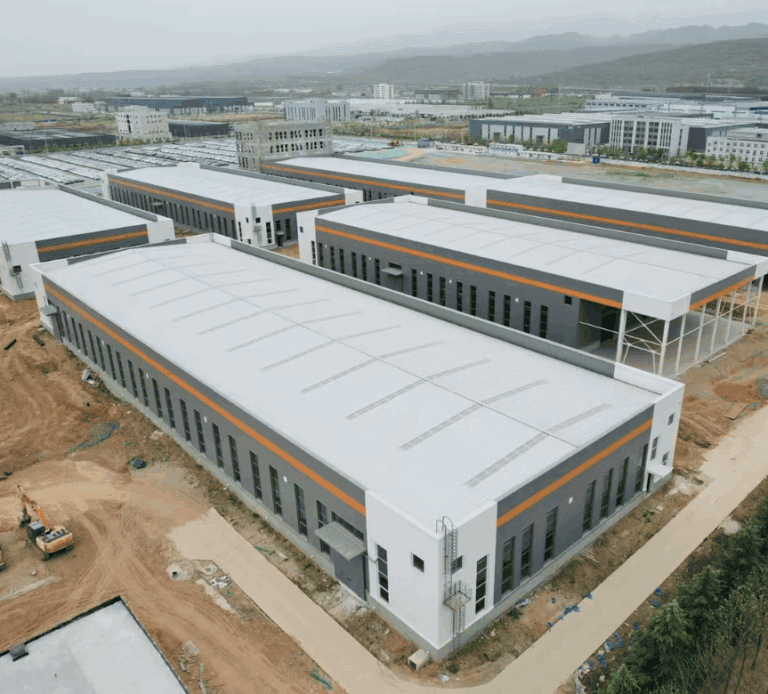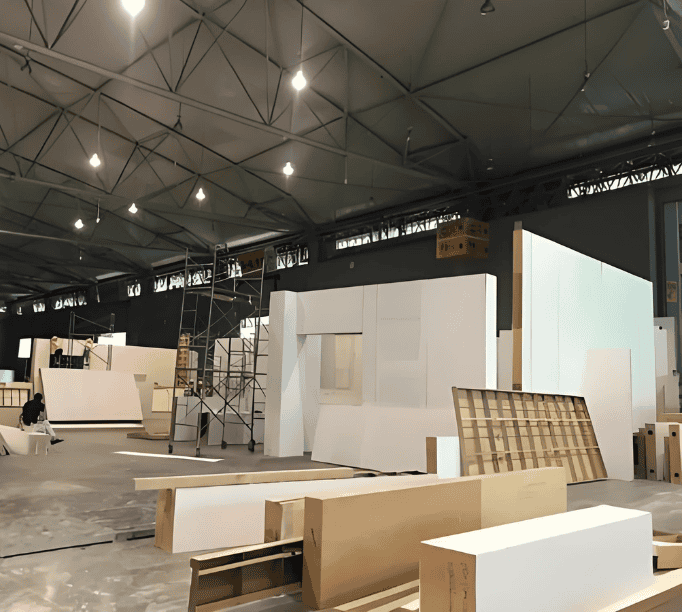When pondering the purchase of a prefabricated home, numerous buyers tend to zero in on the home’s purchase price above all else. Although it’s undoubtedly an important consideration, installation expenses can also substantially influence the overall amount you’ll end up paying. Being aware of both these elements will empower you to make a well-informed choice and steer clear of unforeseen costs.
We’ll guide you through the main factors influencing the cost of a prefab home and the expenses tied to its installation. By the time you reach the conclusion, you’ll have a more precise understanding of what to keep in mind when creating a budget for your new residence.
Average cost of manufactured homes in different regions
To give you a better idea of what to expect, here’s a helpful reference table showing the average costs of manufactured homes and their installation in different regions and countries.
| Region/Country | Average Manufactured Home Price | Average Installation Cost |
| US – West Coast (e.g., California) | $70,000 – $150,000 | $10,000 – $20,000 |
| US – East Coast (e.g., Florida) | $50,000 – $120,000 | $8,000 – $18,000 |
| US – Midwest (e.g., Ohio) | $45,000 – $100,000 | $7,000 – $15,000 |
| US – South (e.g., Texas) | $50,000 – $110,000 | $8,000 – $17,000 |
| Canada – National Average | $60,000 – $130,000 | $9,000 – $18,000 |
| United Kingdom | £40,000 – £90,000 | £6,000 – £12,000 |
| Australia | AUD 80,000 – AUD 160,000 | AUD 12,000 – AUD 20,000 |
| New Zealand | NZD 70,000 – NZD 150,000 | NZD 10,000 – NZD 18,000 |
The costs are estimates and can vary depending on specific factors such as home size, location, delivery distance, local regulations, and labor costs.
Overall, installation adds roughly 10–20% to the total manufactured home cost across most regions. This percentage can increase in areas with higher labor or transport fees, making it essential to calculate installed cost—not just the home’s base price—when budgeting for a new manufactured or modular home.
Base Cost of the Manufactured Home
The base price of a manufactured home depends on the size, design, and materials used. Homes can range from smaller single-section models to larger, multi-section homes with more complex layouts. Generally, the cost ranges from $50,000 to $150,000 or more:
Single-Wide Homes: These typically range from $60,000 to $90,000 for the home itself. They are smaller, usually 600 to 1,200 square feet, and shipped as a single unit.
Double-Wide Homes: These range from $120,000 to $160,000, offering more space (1,300 to 1,800 square feet) and are delivered in two sections that are assembled on-site.
Triple-Wide or Larger: These can start at $145,000 and go up to $280,000 or more, depending on size and features, providing over 2,000 square feet in some cases.
What Factors Influence the Price of a Manufactured Home?
Several key factors determine how much a manufactured home will cost, both in terms of the structure itself and the installation process.
Home Size and Design
The dimensions and configuration of the home have a significant influence on its price. Larger homes with more bedrooms, bathrooms, and open layouts naturally cost more. Custom layouts and modern designs also increase expenses due to additional materials and planning.
Materials Used and Customizations
The quality of materials, such as roofing, insulation, and flooring, directly affects the price. Optional upgrades like energy-efficient windows, premium cabinetry, and advanced HVAC systems will raise the total cost but can reduce long-term maintenance expenses.
Location and Delivery Fees
The location of the installation site can affect the total cost. Remote or difficult-to-access areas often increase transportation and setup costs. Local construction costs, weather conditions, and permit requirements also vary by region.
Installation and Permit Fees
Beyond the home’s purchase price, buyers should consider expenses related to installation and regulatory approvals. These may include:
- Transport permits for oversized loads or long-distance delivery;
- Local building permits and inspection fees (typically $500–$5,000 depending on region);
- Crane or setup labor charges, especially for multi-section homes;
- Utility connection approval costs (electrical, plumbing, and sewage).
Together, these factors can contribute 5–15% to the overall installed cost of a manufactured home.
Additional Costs
Other factors, such as land purchase, taxes, site preparation, and utility connections, can significantly affect the final budget. If the land is undeveloped or requires grading and leveling, costs can increase substantially. Buyers should also research property tax rates and sales tax laws applicable in their region.

Breaking Down Cost of Manufactured Homes Installed
Installation costs can significantly increase the total price of a manufactured home. These costs include transportation, setup, foundation, and utility connections. The following breakdown shows typical cost components and their approximate ranges:
| Component | Description | Typical Cost Range (USD) |
| Delivery and Transport | Under 100 miles: $2,000–$5,000. Over 100 miles: $5,000–$15,000 depending on distance, size, and escort permits. | $2,000–$15,000 |
| Foundation | Permanent foundations (slab or basement) average around $10,000. Non-permanent piers or pads range from $1,000–$5,000. | $1,000–$40,000 |
| Site Preparation | Clearing, grading, and leveling average $4,000–$11,000. Complex sites (wells/septic) may exceed $25,000. | $4,000–$25,000+ |
| Utility Hookups | Electricity, water, sewer, gas. On developed land: $3,000–$10,000. Undeveloped land: up to $30,000. | $3,000–$30,000 |
| Permits and Inspections | Building and impact fees, inspections, and approvals. | $500–$5,000 |
| Labor and Equipment | Installation crews, crane rentals, and assembly. | $3,000–$8,000 |
Total Installed Cost (Estimated Ranges):
- Single-Wide: $80,000–$130,000
- Double-Wide: $150,000–$220,000
- Triple-Wide or Custom: $200,000–$350,000+
For example, a basic double-wide ($130,000 base) with delivery ($9,000), foundation ($10,000), site prep ($7,000), and utilities ($5,000) could total around $161,000. A highly customized triple-wide on raw land with extensive site work could exceed $300,000.
In general, installation typically adds between 15% and 25% to the base home price. That’s why understanding each cost component is critical before finalizing your purchase.
SteelPRO PEB’s modular and pre-engineered systems simplify these installation stages, reducing onsite labor, transport complexity, and total setup cost through precision factory fabrication and efficient on-site assembly.
Hidden manufactured home costs you need to be aware of
While the main expenses of purchasing and installing a manufactured home are straightforward, several hidden costs can still impact your total budget. Being aware of these additional expenses helps you avoid surprises later in the process.
Land Cost
If you don’t already own the land, purchasing it will be a major additional cost. Land prices vary widely depending on location and zoning—rural areas may cost a few thousand dollars, while urban or suburban plots can exceed $50,000. When choosing land, also consider access to utilities and ease of transport for your manufactured home.
Maintenance and Repairs
Although maintenance costs for manufactured homes are generally lower than those for site-built homes, you’ll still need to budget for occasional repairs—such as roof maintenance, plumbing adjustments, and HVAC servicing.
Insurance and Property Taxes
Insurance costs range from $500 to $2,000 annually, depending on coverage and region. Property taxes vary based on location, but homes placed on owned land may qualify for lower long-term costs than leased-lot properties.
Permits, Inspections, and Unexpected Costs
Permits and local inspections often add $500 to $3,000. Unexpected costs can arise from delays, weather-related site issues, or utility connection challenges. These can often be mitigated through careful project planning and transparent cost estimates.
How to Avoid Hidden Costs
Many unexpected expenses arise when buyers underestimate site preparation, inspection, or transport requirements. The best way to avoid this is by working with a certified manufacturer that provides transparent quotations and professional installation guidance.
SteelPRO PEB, a global Steel Structures / PEB Structures Manufacturer & Producer, helps reduce such hidden expenses through precise factory fabrication, clear project documentation, and on-site installation support. By following international ISO and CE standards, we ensure predictable quality and cost control from manufacturing to final setup.
How to Minimize the Cost of Manufactured Home
If you’re planning to lower your total installed cost, there are several practical ways to keep your budget under control without compromising on quality. Below are proven strategies that homeowners often use to save money during the purchase and installation process.
| Strategy | Description |
| Choose a Smaller or Simpler Model | Opt for a compact floor plan or fewer custom features to reduce base cost and setup time. |
| Avoid Unnecessary Upgrades | Focus on essential features; premium finishes and smart systems can add significant cost. |
| Buy a Used or Repossessed Home | Consider pre-owned units in good condition to save 20–40% over new models. |
| Limit Utility Hookups and Modifications | Choose land with existing utilities or minimal site adjustments to cut installation expenses. |
| Select More Affordable Foundation Options | Concrete slabs and pier foundations are usually more cost-effective than basements. |
| Consider DIY Site Preparation | Handle basic grading or landscaping work yourself if regulations allow. |
| Negotiate Delivery Costs | Compare multiple transport providers—delivery distance often influences price more than expected. |
| Buy Factory-Direct from a Certified Manufacturer | Purchasing directly from a producer like SteelPRO PEB helps eliminate dealer markups and ensures that materials meet ISO and CE standards for long-term reliability. |
| Invest in Long-Term Efficiency | Energy-efficient materials may cost more upfront but lower maintenance and utility costs over time. |
By applying these strategies, you can effectively reduce both the base price and installation expenses of your manufactured home.
SteelPRO PEB, as a global Steel Structures / PEB Structures Manufacturer & Producer, provides factory-direct prefabricated solutions with clear pricing and professional installation support—helping you plan more efficiently and avoid unnecessary spending.

Is it cheaper to build a house or buy a manufactured home?
Manufactured homes are more affordable upfront, offering faster construction and significant savings compared to traditional site-built houses. Below is a breakdown of the key differences:
- Upfront Costs
- Building a House: Typically costs $100–$200 per square foot.
- Manufactured Home: Usually $50,000–$150,000, offering a lower entry price for comparable space.
- Land Costs
- Building a House: Land acquisition can be substantial, especially in urban or suburban zones.
- Manufactured Home: Often built on leased land or smaller lots, lowering the total upfront cost.
- Time to Completion
- Building a House: Construction may take several months to over a year.
- Manufactured Home: Factory production takes weeks, and installation can be completed in days.
- Customization Options
- Building a House: Offers full flexibility but raises costs sharply with every change.
- Manufactured Home: Provides limited customization but maintains predictable pricing.
- Long-Term Costs
- Building a House: May include higher maintenance but improved insulation and resale value.
- Manufactured Home: Lower maintenance and repair needs, but insulation performance can vary.
- Resale Value
- Building a House: Typically appreciates in value.
- Manufactured Home: Can depreciate unless placed on owned land or upgraded with a permanent foundation.
Even after including installation and setup expenses, a manufactured home remains 30–40% cheaper than building a comparable traditional house. For buyers prioritizing affordability, quicker occupancy, and controlled installation costs, manufactured homes provide one of the best value-to-price ratios in the housing market.
Making the Right Manufactured Home Cost Decision with a Certified Factory Manufacturer
Choosing a manufactured home isn’t just about the purchase price—it’s about understanding the total installed cost and making sure every dollar brings long-term value. Many buyers hesitate because of uncertainties around installation expenses, durability, or hidden fees that can appear after setup. These concerns are valid, especially when working with unfamiliar suppliers or contractors.
To make an informed decision, focus on three essentials: transparent pricing, certified quality, and reliable installation support. Partnering with a manufacturer that meets international standards ensures your home is built for strength, safety, and efficiency from the start.
SteelPRO PEB, a global Steel Structures / PEB Structures Manufacturer & Producer, has supplied ISO- and CE-certified modular and steel-framed buildings worldwide since 2013. With advanced fabrication systems and strict quality control, we help clients reduce unpredictable costs and ensure stable installation performance.
Your home investment deserves clarity—understand every cost, verify your supplier, and choose a structure built to last.
How long does it take to install a manufactured home?
Most factory-built homes are installed and ready for occupancy within 3–6 weeks after delivery, depending on site preparation, weather, and inspection timelines. Larger or multi-section homes may take longer.
What’s the average foundation cost for installation?
The foundation is a key part of the total installed cost.
- Pier or Pad Foundation: $1,000–$5,000
- Concrete Slab: $5,000–$15,000
- Basement Foundation: $20,000–$40,000
Your foundation type depends on soil stability, local codes, and whether you want a permanent or relocatable setup.
How long do manufactured homes last?
With proper maintenance and moisture protection, modern manufactured homes can last 30 to 55 years or more. High-quality steel-framed or PEB-based models may extend beyond that lifespan, especially when installed on a stable foundation.

